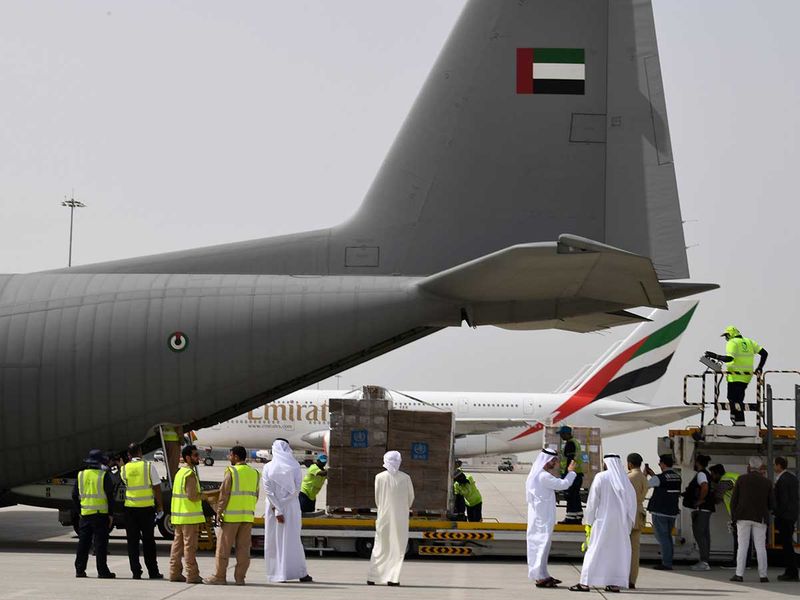Iran has chance to embrace friendship with Gulf states
https://arab.news/5xvda

Amid the coronavirus disease (COVID-19) pandemic, the Islamic Republic has a great opportunity to launch diplomatic initiatives with the aim of improving its relations with other countries in the region and seeking pragmatic coexistence with the Gulf states.
The likes of Kuwait and the UAE have already provided Iran with humanitarian assistance in the fight against the virus. Kuwait has donated $10 million, while the director general of the World Health Organization, Tedros Adhanom Ghebreyesus, applauded the UAE for its efforts.
It is commendable that the Gulf states have offered humanitarian assistance to the Iranian government in spite of their strained relationship. This provides a ripe environment for the Iranian leaders to reciprocate by pursuing diplomacy, which would most likely be a win-win situation for all parties. As Akbar Hashemi Rafsanjani proclaimed when he became president of Iran in 1989, “Iran needs to stop making enemies.” Former reformist President Mohammad Khatami also called for a “dialogue among civilizations,” which was hailed by the Gulf states.
The current situation offers a number of opportunities for Iran to alter its policy toward the Gulf. First of all, it is in the national and humanitarian interests of all countries in the region to contain or possibly eliminate COVID-19. This particularly applies to Iran, which is one of the hardest-hit nations in the Middle East. The Iranian nation is facing an unprecedented health crisis, which is placing significant pressure on the people and government officials. By cooperating with the Gulf states, Tehran can alleviate some of the strains that it is encountering.
In addition, if the Iranian government made an effort to get the Gulf states on to its side, it could bring the country out of isolation and enhance its legitimacy and reputation in the region. This would open the door to increased investments and trade deals. Having warmer ties with the Gulf states could also be beneficial for Tehran in terms of its relationship with the US, as Washington may change its political calculations and ease sanctions on the Islamic Republic.
The Iranian leaders must remember that, in 1997, when Bill Clinton and Khatami were in office, Gulf states were more than willing to play an intermediary role and attempt to de-escalate tensions between the US and Iran. They also praised Khatami’s efforts to shift Iran’s foreign policy from aggressiveness and pursuit of dominance in the region into pragmatism. There were remarkable improvements, with an increased number of official visits between Iran and its Gulf neighbors during this period, and with the Iranian president showing the country’s desires to embrace friendship.
Nevertheless, in order to achieve these objectives, today’s Iranian government must demonstrate that it is genuine in shifting its policy toward the Gulf states. This means that the Iranian leaders must take several important steps. First, Tehran must change its role and end its interference and influence in impacting the direction of politics in Arab countries. One example is Syria. Tehran ought to ease its attempts to use Syria as a proxy battleground against Israel and the US, and it must stop arming and financing Shiite militia groups. In Yemen, Iran’s Islamic Revolutionary Guard Corps and its elite branch, the Quds Force, should withdraw their military, advisory and financial support to the Houthis.
Iran’s leaders could bring the country out of isolation and enhance its legitimacy and reputation in the region.
Dr. Majid Rafizadeh
Iran’s leaders must also address the concerns of the Gulf states about the threat that Tehran’s nuclear program poses to the region. It has become evident that the Joint Comprehensive Plan of Action did not address these concerns and curb Tehran’s nuclear ambitions. Therefore, the deficiencies in the nuclear agreement, including the sunset clauses that remove restrictions on Iran’s nuclear program when the agreement expires, must be revised.
In conclusion, the Iranian government has two paths to choose from: To seek to further its isolation and alienation through continued violence, or to take the opportunity for de-escalation via diplomacy and embracing friendship with its Gulf neighbors. Improved relations between Iran and the Gulf could have a significant impact on the region’s geopolitical, economic and security landscapes. If Iran pursues these diplomatic initiatives, the region might witness more stability and security, which would preserve the economic, political and strategic interests of all parties involved.
- Dr. Majid Rafizadeh is an Iranian-American political scientist. He is a leading expert on Iran and US foreign policy, a businessman and president of the International American Council. Twitter: @Dr_Rafizadeh







































